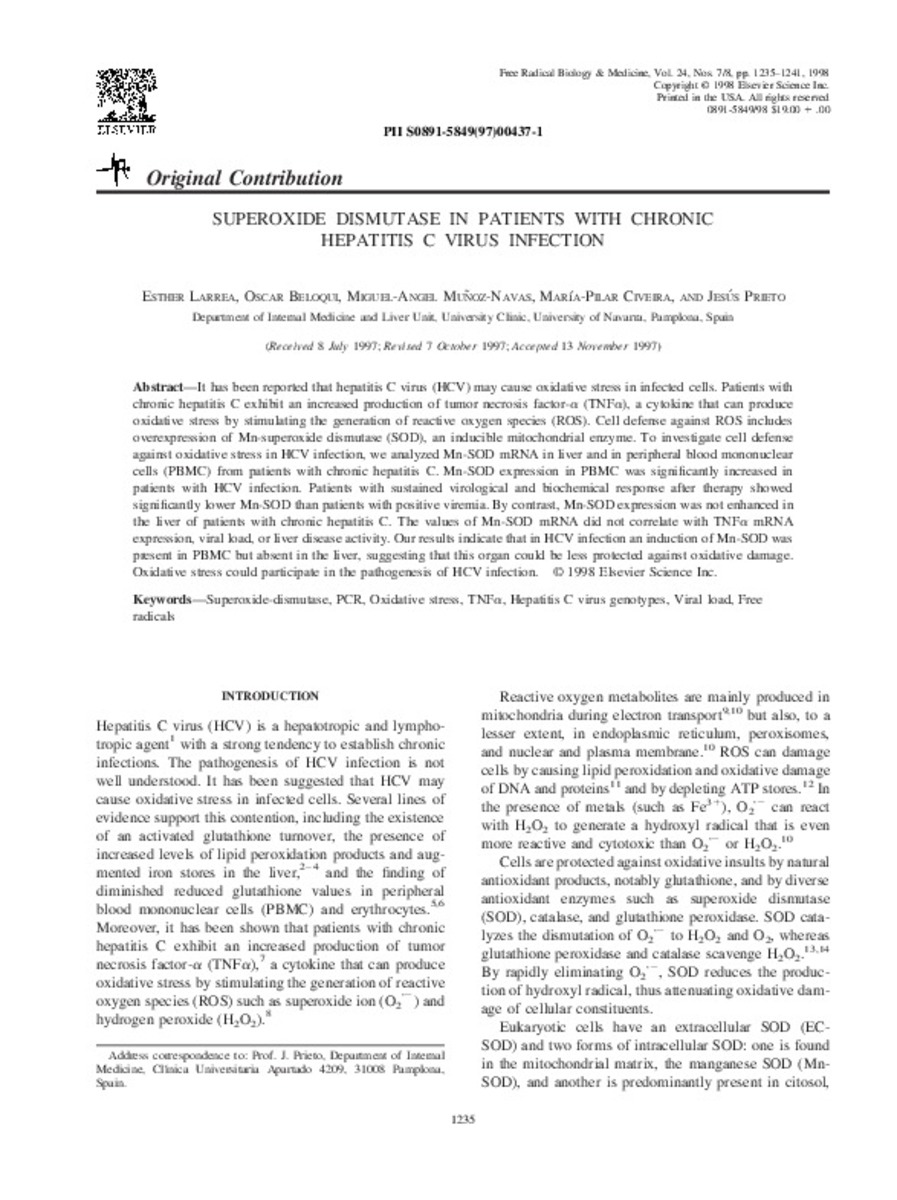Superoxide dismutase in patients with chronic hepatitis C virus infection
Palabras clave :
Superoxide-dismutase
PCR
Oxidative stress
TNFalfa
Hepatitis C virus genotypes
Viral load
Free radicals
Fecha de publicación :
1998
Cita:
Larrea E, Beloqui O, Munoz-Navas MA, Civeira MP, Prieto J. Superoxide dismutase in patients with chronic hepatitis C virus infection. Free Radic Biol Med 1998 May;24(7-8):1235-1241.
Aparece en las colecciones:
Estadísticas e impacto
0 citas en

0 citas en

Los ítems de Dadun están protegidos por copyright, con todos los derechos reservados, a menos que se indique lo contrario.







